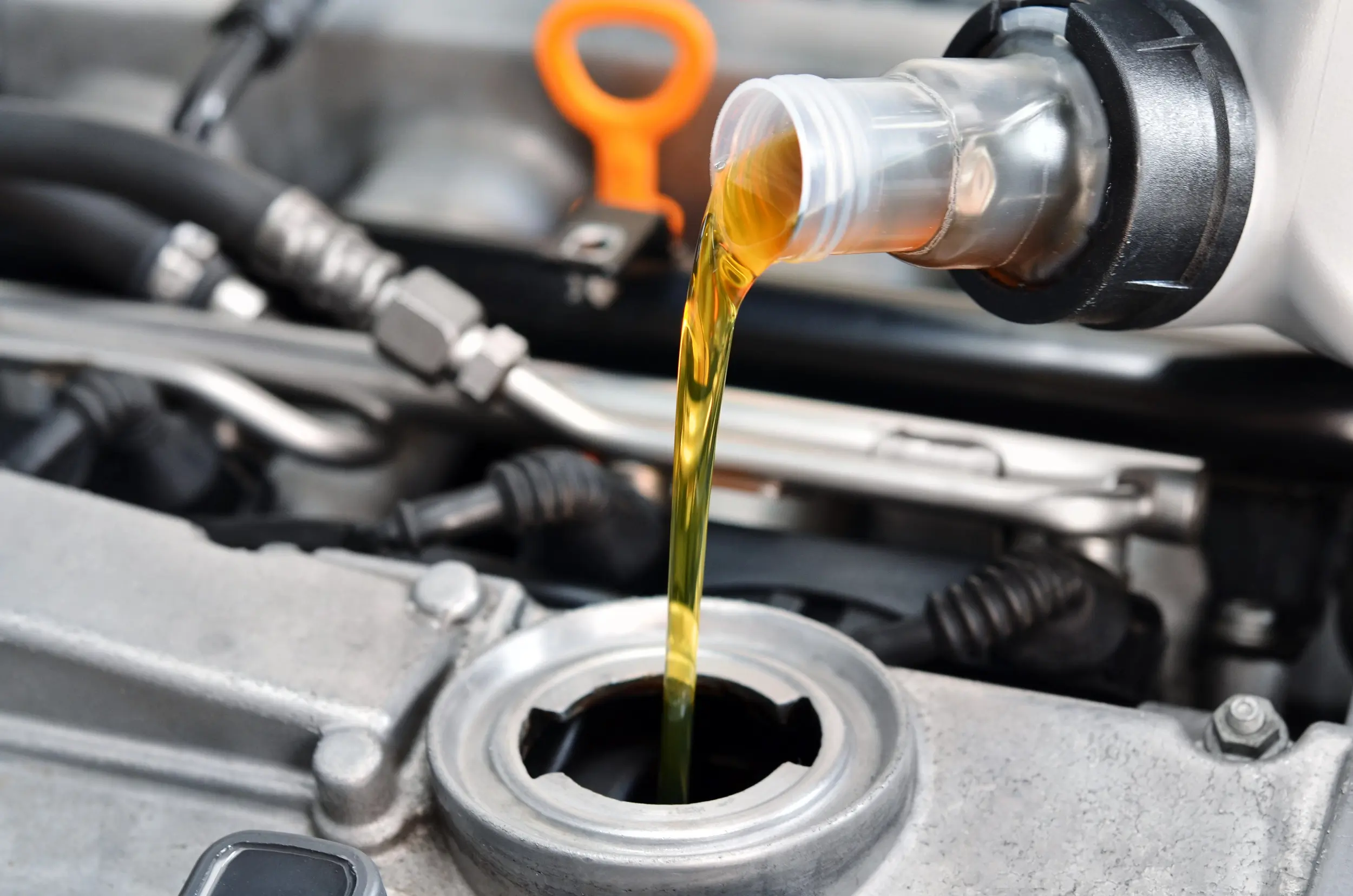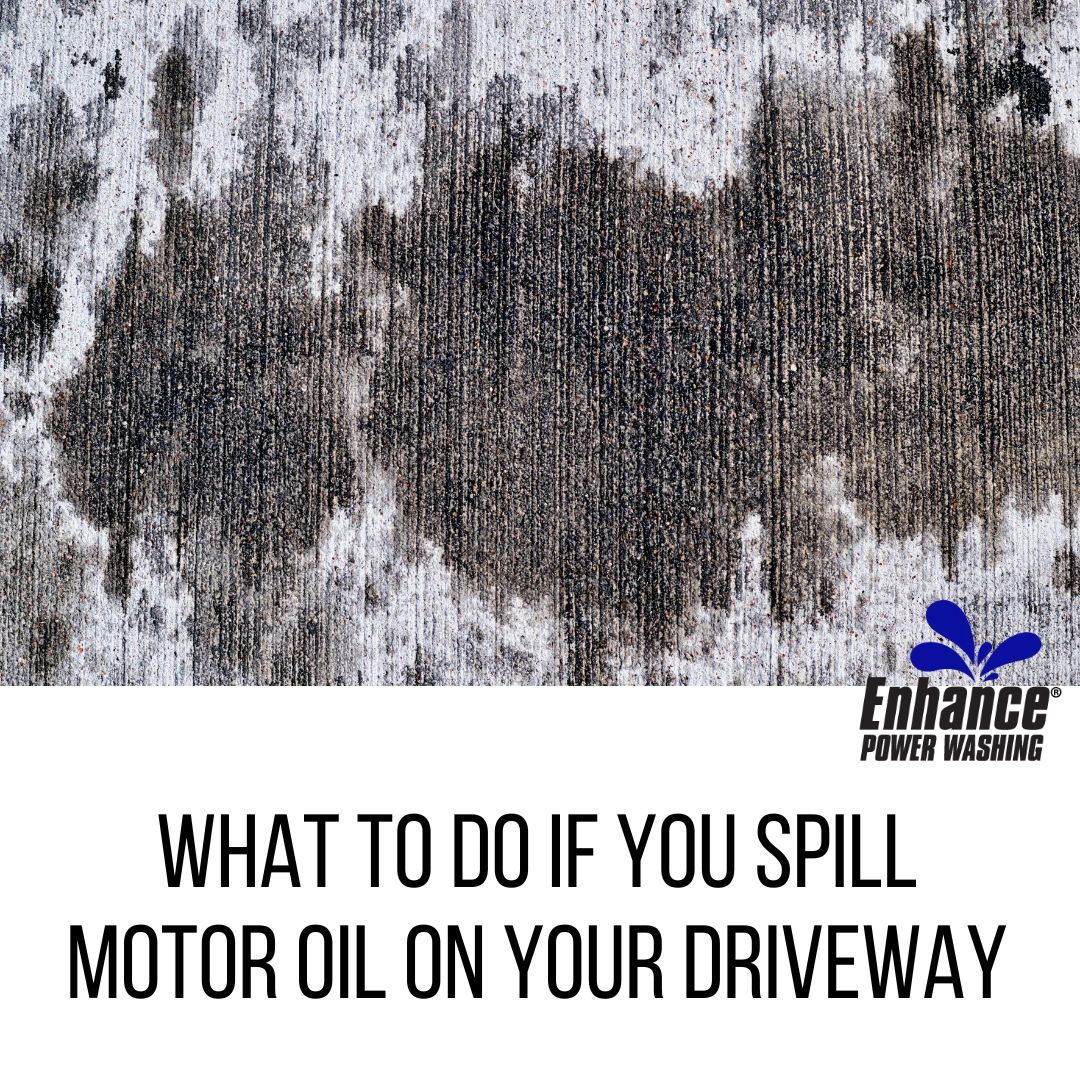You’ve just finished working on your car, feeling accomplished and ready to hit the road. But then, disaster strikes.
You notice a slick, dark puddle of engine oil on the ground. Panic sets in as you wonder how to clean it up, avoid further damage, and prevent any environmental harm. Don’t worry—you’re not alone in this oily mess. Spilling engine oil is more common than you might think, and knowing what to do next is crucial.
This guide will arm you with simple, effective steps to tackle the spill safely and efficiently. Stick around, and you’ll soon feel confident in handling any spill with ease. So, ready to clean up and move on? Let’s dive in!
Immediate Actions
Act fast to prevent damage when engine oil spills. Use absorbent materials to soak up excess oil immediately. Clean the area with soap and water to avoid stains and environmental harm.
Spilling engine oil can be a nerve-wracking experience, especially if you’re unsure of the steps to take. Immediate actions are crucial to prevent accidents and minimize damage. Knowing what to do right away can make all the difference. Let’s dive into the essential steps you should follow when you spill engine oil.Assess The Spill
Before anything else, take a moment to assess the situation. Is the spill small, or has it spread over a wide area? Understanding the size and scope will help you decide on the best course of action. Is the spill on your driveway, garage floor, or somewhere else? Different surfaces might require different cleaning methods. Evaluate the immediate surroundings to ensure no one accidentally slips.Safety Precautions
Your safety should be a top priority. Engine oil can be slippery and hazardous. Make sure you’re wearing gloves to protect your skin from the oil. Ensure good ventilation in the area. If you’re indoors, open windows or doors to allow fresh air in. This helps disperse any harmful fumes. Do you have pets or children around? Keep them away from the spill to prevent accidental contact. Also, make sure you have a clear path to move around safely. Taking these immediate actions can help you handle an engine oil spill effectively. Have you ever dealt with a similar situation? How did you manage it? Share your experiences and insights in the comments below!
Credit: jerry.ai
Contain The Spill
Spilling engine oil might seem like a minor mishap, but it can lead to serious environmental and safety concerns if not addressed promptly. Containing the spill should be your first priority. Quick action can prevent oil from spreading and causing further damage. You don’t need to be an expert to manage this—just some practical steps will do. Let’s dive into how you can effectively contain an engine oil spill.
Use Absorbent Materials
One of the quickest ways to contain a spill is by using absorbent materials. These materials can soak up the oil, preventing it from spreading further. Items like kitty litter, sawdust, or sand are excellent choices for small spills. You probably have some of these at home, making them convenient options.
Think about the time you accidentally tipped over a bottle of oil in your garage. Kitty litter saved the day by absorbing the mess efficiently. You can sweep it up easily afterwards, minimizing the hassle.
Ask yourself, what absorbent materials do you have on hand? Keeping some ready can make a big difference in emergencies.
Create A Barrier
After using absorbent materials, creating a barrier around the spill is crucial. This prevents the oil from reaching other areas or seeping into the ground. You can use items like plastic sheets or even rolled-up towels to form a perimeter around the spill.
Imagine you’re camping and accidentally spill oil on the ground. Creating a barrier can stop the oil from reaching the nearby stream, protecting wildlife and water quality.
Have you ever thought about how simple household items can play a role in environmental protection? Your quick actions can prevent a small spill from turning into a big problem.
By focusing on containment, you take the first step toward addressing the spill effectively. What strategies will you employ next time you face a spill?
Clean Up Process
Spilling engine oil can be stressful. But cleaning it up is crucial. Oil spills can damage surfaces and harm the environment. Follow a simple process to ensure thorough cleaning. Acting quickly can prevent stains and protect your surroundings. Here’s a step-by-step guide to help you clean up an oil spill effectively.
Remove Excess Oil
First, tackle the excess oil. Use absorbent materials like paper towels or rags. Blot, don’t wipe, to avoid spreading the oil further. If available, use kitty litter or sawdust. These materials absorb oil efficiently. Cover the spill completely. Let it sit for a few minutes. This allows the oil to absorb thoroughly. Once absorbed, carefully scoop up the material. Dispose of it in a sealed bag. This prevents further leakage or contamination.
Wash And Rinse Area
Next, wash the area with soap and water. Choose a degreasing soap for better results. Mix soap with warm water in a bucket. Use a scrub brush to clean the surface. Scrub in circular motions to lift oil stains. Be gentle to avoid damaging the surface. Rinse the area with clean water. Make sure no soap residue remains. Dry the surface with a clean towel. A clean area ensures safety and prevents slips.
Disposal Of Contaminated Materials
Spilling engine oil can be a headache, especially when it comes to cleaning up and disposing of contaminated materials. It’s not just about wiping up the mess; you need to think about the environment and the legal implications of improper disposal. Many people don’t realize that engine oil is considered hazardous waste and requires special handling. Let’s dive into how you can identify and properly dispose of these contaminated materials.
Identify Hazardous Waste
Did you know that engine oil is classified as hazardous waste? This means you can’t just toss those oil-soaked rags or kitty litter into the trash. They’re harmful to the environment and can contaminate water sources. Before you dispose of anything, make sure you identify all materials that have come into contact with the oil—like rags, absorbents, and even soil.
Look for signs like discoloration or a strong odor. If you’re unsure, treat it as hazardous waste. It’s better to be safe than sorry. You might think a small spill is no big deal, but even a little negligence can lead to hefty fines and environmental damage. So be vigilant and thorough in identifying contaminated materials.
Proper Disposal Methods
Once you’ve identified the hazardous materials, what do you do next? You have a few options. First, check if your local waste management facility offers hazardous waste disposal services. They often have specific days for dropping off materials like engine oil, oil filters, and contaminated rags. It’s a simple call or visit to their website to find out.
If local services aren’t available, you can turn to specialized disposal companies. Some companies will come to your location to collect the waste for a fee. It might cost a bit more, but it ensures you’re compliant with laws and protecting the environment. Consider it an investment in peace of mind.
Have you ever thought about reducing waste by cleaning materials? Some absorbents can be washed and reused, though this is not always practical for everyone. It’s a question of how much effort you’re willing to put into sustainable practices. Balancing convenience with responsibility can be a tough call, but every little bit helps.
Remember, your actions have consequences. Improper disposal can lead to environmental harm and legal issues. So take the time to dispose of contaminated materials correctly. How will you choose to handle your next spill?
Prevent Future Spills
Spilling engine oil can be messy and harmful to the environment. Clean spills promptly with absorbent materials like kitty litter or sand. Dispose of waste properly to prevent future spills and protect nature.
Spilling engine oil can be a real headache, not just for your garage floor but for the environment too. Luckily, there are ways to prevent these mishaps in the future. By taking a few proactive steps, you can keep your workspace clean and your conscience clear. Let’s dive into some practical strategies to avoid future oil spills.Regular Maintenance Checks
Regular maintenance checks play a crucial role in preventing engine oil spills. Take a moment to inspect your vehicle for leaks. A small crack or loose fitting can lead to a messy spill. Set a schedule for these checks. You could align it with your oil change routine. This way, it becomes a habit and not an afterthought. During these inspections, pay attention to the oil filter and drain plug. These are common culprits for leaks. Tighten them if needed, and replace any worn-out seals or gaskets.Use Of Spill Mats
Spill mats are a fantastic tool for preventing oil from reaching your floor. Place one under your vehicle during maintenance work. It acts as a barrier, absorbing any accidental drips. Choose a mat made from absorbent material. They are designed to soak up oils and can handle a fair amount of liquid. Some even have a non-slip backing to stay firmly in place. Consider the size of the mat based on your workspace. A larger mat offers more coverage. If you frequently work on different vehicles, a versatile mat can be a lifesaver. Implementing these precautions can save you from dealing with a messy, time-consuming cleanup. What methods have you found effective in preventing spills? Share your thoughts in the comments!
Credit: enhancepowerwashing.com
Environmental Considerations
Spilling engine oil is more than a messy problem. It poses environmental risks too. Proper handling is crucial to protect nature and wildlife.
Impact On Surroundings
Engine oil affects soil and water. It seeps into the ground, harming plants. Contaminated soil loses nutrients. Nearby water bodies face oil film layers. This blocks sunlight and disrupts aquatic life. Wildlife contact oil, causing health issues. It’s important to clean spills promptly.
Avoiding Pollution
Use absorbent materials like sand or cat litter. These materials soak up oil quickly. Dispose of them in sealable bags. Prevent oil from reaching drains or sewers. Seal off affected areas with barriers. This limits the spread of contamination. Report large spills to local authorities. They provide proper clean-up support.

Credit: www.autoguru.com.au
Conclusion
Spilling engine oil happens. But now, you know what to do. Quick action is key. Start by containing the spill. Use absorbent materials. Clean the area thoroughly. Dispose of waste properly. Protect our environment. Regular checks help prevent spills. Maintain your vehicle well.
Always have a cleanup kit ready. Remember, safety first. Follow these steps, and handle spills confidently. Keep your workspace tidy. Avoid accidents. Stay informed and prepared. Your knowledge is your best tool. With practice, handling spills becomes easier. Make safety a habit.
Your efforts protect both your vehicle and the planet.
